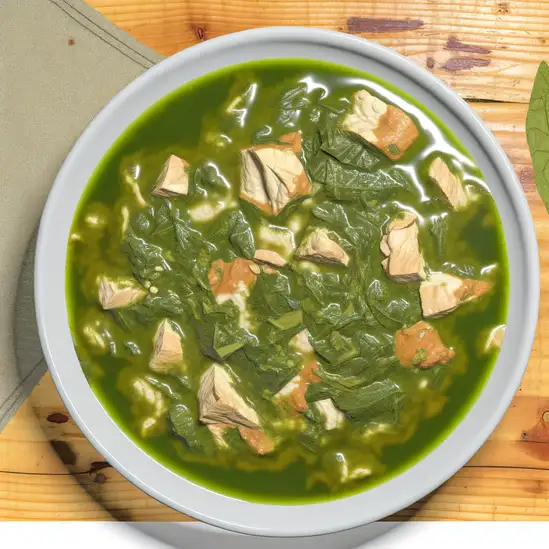



If you ever find yourself in Egypt,Abu Simbel is one of those places that grabs you by the heart and doesn’t let go. The moment you step near those colossal temples carved straight into the sandstone cliffs,you feel the weight of history pressing gently against your skin. The air carries a dry warmth,tinged with the faint scent of desert dust and ancient stone,while the sun casts long shadows that dance across the giant statues of Ramses II,making them seem almost alive. It’s like stepping into a story where the past and present whisper to each other. Walking around Abu Simbel,you can’t help but marvel at the sheer scale and precision of the craftsmanship. The four massive seated figures at the entrance stare out with a quiet,commanding presence,and inside,the walls are alive with colorful hieroglyphs and scenes that tell tales of gods and kings. There’s a hum of reverence in the air,a feeling that you’re in a place where time folds in on itself. The nearby Nile adds a gentle soundtrack,its waters shimmering under the blazing sun,reminding you of the life that has flowed here for millennia. What makes Abu Simbel truly unforgettable is its story of survival—how these temples were painstakingly relocated to save them from the rising waters of Lake Nasser. That blend of human determination and ancient grandeur gives the place a unique soul. Visiting Abu Simbel isn’t just about seeing a monument; it’s about feeling connected to a world that’s both distant and incredibly alive.
The information on this page is currently being reviewed by Tripkliq and should be used as a guide only
Eng word: Hello
Eng pronunciation: Marhaban
Local language: مرحبا
Eng word: Goodbye
Eng pronunciation: Wada'an
Local language: وداعا
Eng word: Thank you
Eng pronunciation: Shukran
Local language: شكرا
Eng word: How much
Eng pronunciation: Kam al-si'r
Local language: كم السعر
Eng word: Toilet
Eng pronunciation: Mirhad
Local language: مرحاض
Eng word: Help me
Eng pronunciation: Sa'idni
Local language: ساعدني
Eng word: Yes
Eng pronunciation: Na'am
Local language: نعم
Eng word: No
Eng pronunciation: La
Local language: لا
Eng word: Excuse me
Eng pronunciation: Afwan
Local language: عفوا
The Abu Simbel temples were constructed by Pharaoh Ramesses II in the 13th century BC to commemorate his victory at the Battle of Kadesh and to honor the gods Amun, Ra-Horakhty, and Ptah.
In the 1960s, the temples were relocated to higher ground to avoid being submerged by the rising waters of Lake Nasser, created by the construction of the Aswan High Dam. This massive engineering feat was completed with the help of UNESCO.
Twice a year, on February 22 and October 22, the sun aligns perfectly to illuminate the inner sanctuary of the Great Temple, lighting up the statues of Ramesses II and the gods, except for Ptah, the god of the underworld.
The Great Temple is dedicated to Ramesses II and features four colossal statues of the pharaoh seated on his throne, each standing about 20 meters tall.
The Small Temple is dedicated to Ramesses II's favorite wife, Queen Nefertari, and the goddess Hathor. It features six statues on its facade, four of Ramesses and two of Nefertari.
The interiors of both temples are adorned with intricate carvings and hieroglyphics depicting scenes of the pharaoh's military victories, religious rituals, and daily life.
The Abu Simbel temples are part of the 'Nubian Monuments' UNESCO World Heritage Site, recognized for their historical and cultural significance.
The temples were built to demonstrate the power and divine nature of Ramesses II, serving as a lasting testament to his reign and the might of ancient Egypt.
The temples were rediscovered by Swiss explorer Johann Ludwig Burckhardt in 1813 and later fully uncovered by Italian explorer Giovanni Belzoni in 1817.
In Abu Simbel, the most common Power Adaptor is Type C, Type F.



A traditional dish made with layers of rice, bread, and meat, often served with a garlic and vinegar sauce, Fattah is popular during festive occasions.

A hearty mix of rice, lentils, pasta, and topped with a spicy tomato sauce and crispy onions, Koshari is a beloved Egyptian street food.

A green soup made from the leaves of the jute plant, Molokhia is typically served with rice and chicken or rabbit, offering a unique flavor and texture.

Vegetables such as zucchini, eggplant, and bell peppers stuffed with a mixture of rice, herbs, and spices, Mahshi is a comforting and flavorful dish.

Egyptian falafel made from fava beans instead of chickpeas, Ta'ameya is deep-fried and often served in pita bread with salad and tahini sauce.
If you ever find yourself dreaming of a place where time seems to slow down and the Nile whispers stories of ancient civilizations,Aswan is that kind of magic. The moment you step off the boat or stroll through its sun-dappled streets,there’s this warm,golden glow that wraps around you—part desert sun,part river breeze. The air carries a mix of fragrant spices from bustling markets and the subtle scent of fresh dates,making every breath feel like a small adventure.
Aswan’s charm isn’t just in its stunning views of the Nile,framed by palm trees and rugged cliffs,but in its gentle rhythm. Locals greet you with genuine smiles,and the call to prayer echoes softly,blending with the laughter of children playing by the water’s edge. Sitting at a riverside café,sipping on sweet hibiscus tea,you can watch feluccas glide gracefully across the shimmering water,their sails catching the light like delicate wings.
What really sets Aswan apart is its deep connection to history and culture without feeling like a museum. The Nubian villages nearby burst with vibrant colors and traditions that feel alive and welcoming. Whether you’re exploring ancient temples carved into the rocks or bargaining for handwoven textiles,there’s a sense of discovery that’s both humbling and exhilarating. Aswan invites you to slow down,soak in its warmth,and let the stories of the Nile seep into your soul.
Imagine stepping into a place where history whispers from every stone and the Nile’s gentle breeze carries stories thousands of years old—that’s Luxor. The moment you arrive,there’s this warm,golden light that seems to wrap around you,softening the edges of the ancient temples and bustling markets alike. Walking along the riverbank at sunset,you’ll hear the distant call of a muezzin blending with the chatter of locals and the rhythmic splash of feluccas cutting through the water. It’s a city that feels alive,not just with people but with the pulse of time itself.
The air is rich with the scent of spices and freshly baked bread from street vendors,mingling with the faint aroma of lotus flowers floating nearby. Exploring Luxor’s vast temples and tombs,you can almost feel the hands that carved the hieroglyphs,the weight of pharaohs’ legacies pressing gently on your imagination. But Luxor isn’t just about the past—it’s about the vibrant present,too. The friendly shopkeepers invite you to taste sweet hibiscus tea or sample local dates,and the lively souks buzz with colors and textures that make you want to reach out and touch everything.
What makes Luxor truly special is this blend of awe and warmth. It’s a place where you can marvel at colossal statues and then share a laugh with a local over a cup of coffee. It’s a city that invites you to slow down,soak in the stories,and feel connected—not just to history,but to the people who keep its spirit alive today.
If you’re dreaming of a place where the sun seems to linger just a little longer and the sea whispers stories of ancient times,Hurghada is that kind of magic. Walking along its coastline,you’re greeted by the endless stretch of turquoise waters meeting golden sands,with the salty breeze carrying the faint scent of jasmine and spices from nearby markets. The vibe here is relaxed but alive—locals chatting animatedly in cafes,fishermen hauling in their catch,and the distant hum of boats slicing through the Red Sea.
What really makes Hurghada special is how it blends the raw beauty of nature with a warm,welcoming culture. The city pulses with a laid-back energy,where you can dive into vibrant coral reefs teeming with colorful fish one day,and the next,wander through bustling souks filled with the aroma of freshly ground coffee and sweet dates. At night,the air cools,and the city lights flicker on,inviting you to savor freshly grilled seafood while the call to prayer echoes softly in the background.
There’s a genuine friendliness here that makes you feel like you’re not just visiting,but becoming part of a story that’s been unfolding for centuries. Whether you’re sipping mint tea with new friends or watching the sun dip below the horizon in a blaze of orange and pink,Hurghada leaves you with a sense of calm adventure and a craving to come back for more.
Imagine stepping into a place where the sun kisses the desert and the sea sparkles with every shade of blue you can dream of—that’s Sharm el-Sheikh for you. The moment you arrive,there’s this laid-back energy in the air,a mix of warm sea breezes and the faint scent of spices from nearby markets. Walking along the marina,you’ll hear the gentle lapping of waves mingling with the distant chatter of fishermen and the occasional call to prayer,creating a rhythm that feels both timeless and alive.
The city itself is a vibrant blend of cultures,where Bedouin traditions meet modern resorts and lively cafes. You can wander through bustling souks filled with colorful textiles,fragrant incense,and the rich aroma of freshly brewed mint tea. At night,the desert sky unfolds in a dazzling display of stars,and the local music spills out from cozy restaurants,inviting you to savor dishes bursting with flavors—think tender grilled seafood,smoky kebabs,and sweet,sticky baklava.
What really makes Sharm el-Sheikh unforgettable is its connection to nature. Snorkeling or diving in the Red Sea feels like entering another world,with coral reefs teeming with vibrant fish and graceful rays gliding beneath you. Whether you’re exploring the rugged mountains nearby or simply lounging on a sun-warmed beach,there’s a peacefulness here that seeps into your soul. It’s a place where adventure and relaxation dance together,leaving you refreshed and inspired long after you’ve left.
Cairo feels like stepping into a living,breathing storybook where ancient history and vibrant modern life collide in the most exhilarating way. The moment you arrive,you’re wrapped in a tapestry of sounds—the call to prayer echoing from minarets,the lively chatter of street vendors,and the hum of bustling markets. The air carries a mix of spices,fresh bread,and the faint scent of the Nile,inviting you to slow down and soak it all in.
Walking through Cairo’s streets,you’ll find yourself mesmerized by the city’s contrasts. Towering minarets and centuries-old mosques stand proudly beside colorful street art and lively cafes where locals sip strong,sweet tea. The city pulses with energy,yet there’s a warmth in the smiles of shopkeepers and the inviting aroma of freshly baked falafel and koshari wafting from corner stalls. It’s a place where every turn reveals a new story,from the majestic pyramids just outside the city to the labyrinthine alleys of Khan El Khalili bazaar,where you can haggle for handwoven textiles or sip mint tea while watching artisans at work.
What makes Cairo truly unforgettable is its spirit—a blend of resilience,hospitality,and deep-rooted pride in its heritage. It’s a city that invites you to explore,taste,and connect,leaving you with a sense of wonder and a craving to return. Trust me,once you’ve wandered its streets and felt its heartbeat,Cairo stays with you long after you’ve left.
Alexandria feels like stepping into a story where the Mediterranean breeze carries whispers of ancient legends and modern life mingles effortlessly with history. The moment you arrive,there’s this unmistakable rhythm—a blend of seagulls calling overhead,the gentle slap of waves against the Corniche,and the distant chatter of locals sipping strong,sweet tea in cozy cafes. The air is tinged with salty sea spray and the faint aroma of freshly baked bread from nearby bakeries,inviting you to slow down and soak it all in.
Walking through the city,you’ll notice how Alexandria wears its past with pride but never feels stuck in it. The grand library,a modern marvel,stands as a beacon of knowledge,while the ancient ruins peek out from unexpected corners,telling tales of Cleopatra and Roman emperors. The streets buzz with a unique energy—vendors selling fragrant spices,fishermen hauling in their catch,and artists sketching the ever-changing seascape.
What really makes Alexandria special is its warmth. The people here have a relaxed charm,always ready to share a story or recommend a local dish like the creamy,tangy Alexandrian fish sayadeya. As the sun dips below the horizon,the city transforms; lights twinkle along the waterfront,and the scent of grilled seafood mingles with the salty air. It’s a place that invites you to linger,to explore,and to fall a little in love with its timeless spirit.
Some vendors or individuals may offer to exchange foreign currency at unfavorable rates or provide counterfeit bills in return.
Unlicensed individuals may approach tourists claiming to be official guides, offering tours with little value or incorrect information for inflated fees.
Vendors near the temples may charge tourists excessively high prices for souvenirs, especially if they sense the buyer is unfamiliar with local pricing.
Locals may demand money for taking photos of them or their animals, even if the tourist did not intend to pay for the interaction.
Taxi drivers may refuse to use meters and quote exorbitant prices for short rides, especially for tourists traveling to and from the temples.
Scammers may sell fake or invalid tickets to the Abu Simbel temples, leaving tourists unable to enter after paying.
The use, possession, and trafficking of illegal drugs are strictly prohibited in Egypt, including Abu Simbel. Penalties for drug-related offenses are severe and can include long prison sentences or even the death penalty. Tourists should avoid any involvement with illegal drugs to avoid serious legal consequences.
In Abu Simbel, as in the rest of Egypt, smoking is generally allowed in public places, although there are restrictions in certain areas such as hospitals, schools, and government buildings. Tourists should be mindful of 'No Smoking' signs and should always ask for permission before smoking in private establishments or near historical sites.
Vaping is less common in Egypt compared to smoking, but it is not explicitly banned. However, similar to smoking, it is advisable to avoid vaping in restricted areas such as hospitals, schools, and government buildings. Tourists should also be cautious and respectful when vaping in public or private spaces.
What are other people saying about Abu Simbel?
Recent Social posts about Abu Simbel
There is nothing to show you for now.